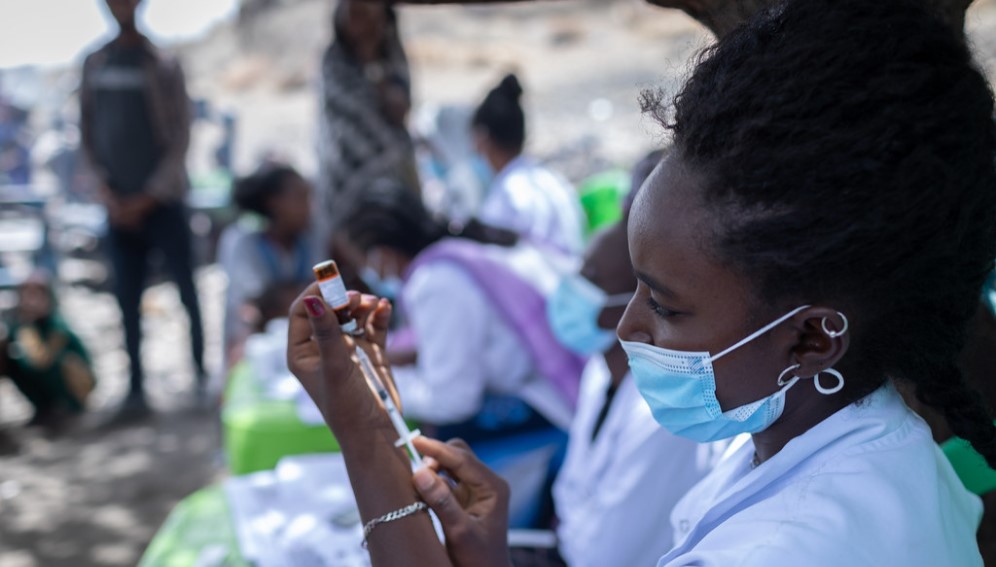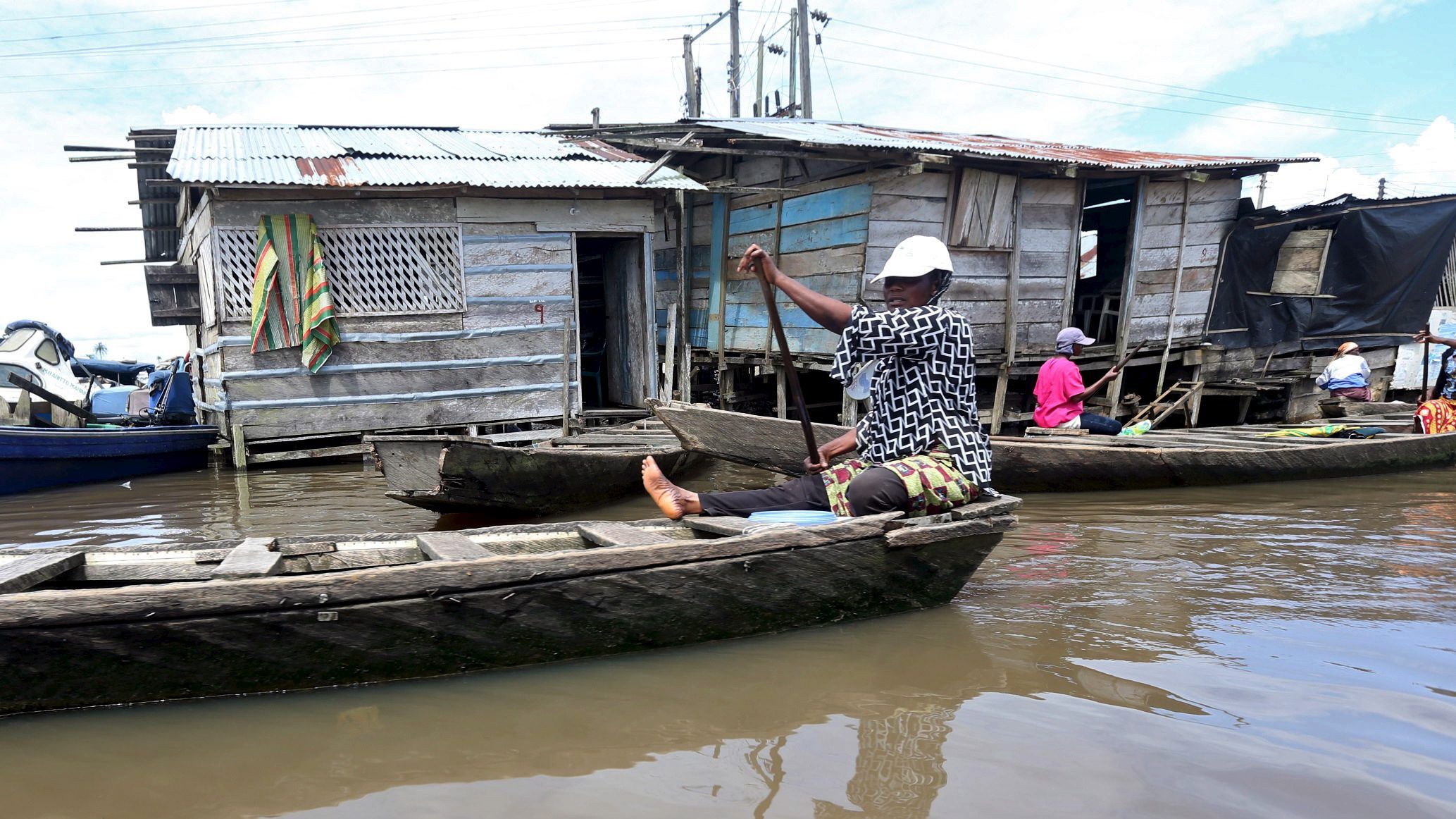Health extension worker prepares to give an injection. Copyright: UNICEF Ethiopia/2022/Mulugeta Ayene, CC BY-NC-ND 2.0
BY JOHN ADELEKE
It is 2024 in Nigeria, and the cost of food and other household commodities has tripled shockingly. Families are finding it difficult to afford nutritious meals, and the increased cost of basic medicines becomes a heavier burden on a family’s limited budget, while public healthcare facilities are becoming progressively worse due to underfunding.
These everyday struggles of ordinary Nigerians are not just about money or the economy but also about health. When prices rise, and policies shift, the poorest suffer the most. These socioeconomic situations determine who gets sick, who gets care, and who gets left behind.
When thinking about health, we often focus on individual factors such as symptoms, diagnosis, and lifestyle behaviour. However, only 20% of health outcomes in Nigeria and the rest of the world can be linked to these factors. The social, political, and economic factors, on the other hand, significantly influence health. The position an individual is placed in the social, political, and economic ranking have greater effects on their health outcomes. As a health disparities researcher from Nigeria, I have witnessed firsthand how wealth and social connection determine whether someone lives or dies. I aim to draw your attention to the connections between socioeconomic policies and health systems, especially as they affect the well-being of poor and vulnerable groups.
Advertisement
I must acknowledge that Nigeria faces numerous developmental challenges despite abundant mineral and natural resources, a vibrant youth population, immense human talents, and robust economic potential. Inflation is at a record high of 33.9%, and at 53 years, life expectancy remains one of the lowest in the world, worse than in some war-torn regions. Human Development Index, which measures a long and healthy life, access to knowledge, and a decent standard of living, shows Nigeria sitting at 161st position out of 184 countries. Long-standing problems of bad government decisions cause these challenges, huge gaps between the rich and poor, and widespread corruption. While the impact of economic policies and health outcomes may not be direct and immediate, unfavourable economic policies progressively worsen health disparities among Nigerians.
There is a consensus that socioeconomic policies have enormous health implications. The recent economic policies of the Nigerian government have led to the rising cost of food and prescription drugs, for instance. A healthy diet is one of the primary steps to a healthy life. Inflation has worsened inequality by driving up the cost of essentials and reducing the purchasing power of Nigerians, especially the poor and vulnerable. It forces Nigerians to spend a larger percentage of their already devalued low income on necessities, especially food, whose prices have skyrocketed and are still increasing. Poor diet and inadequate nutrient intake pose health risks, particularly for children of poor and low-income households. When hunger spreads, poor people become vulnerable to bad health.
Another of these policies is the Nigerian government’s health fiscal framework. At $1 billion dollars and 4.6% of the Nigerian annual budget, it is still a far cry from the needed resources for a critical sector like health in a country of over 200 million people. This explains the decline in the infrastructural facilities in our public hospitals. There are reports that doctors conduct surgery using candlelight because of the lack of electricity. Prenatal care, childbirth, and paediatric care become more expensive and less accessible for most families. This can lead to delays in seeking and getting medical attention, inadequate care, and even home birth without skilled professionals, intensifying the risks of complications for mothers and babies. Increased crime is another implication of economic hardship. Economic hardship creates social unrest and instability, which allow criminal activities to thrive and further undermine public safety. Those most affected are people in under resourced and disadvantaged communities.
Advertisement
In addressing these challenges, the Nigerian government must rethink its policy formulation and implementation strategies to ensure they do not worsen the citizens’ quality of life. We require a holistic approach targeting prevalent health issues such as maternal and child health, infectious diseases, and non-communicable diseases. By proactively addressing these specific health issues, we can prevent worrisome mortality and reduce the disparities in health outcomes. There is a need for massive investment in the health sector by increasing its fiscal allocation to 15 percent, as recommended by the 2001 Abuja declaration of the African Union. The country must invest heavily in initiatives that alleviate poverty, such as social welfare programs, job opportunities, and sustainable livelihood. We must see health as a social, economic, and political issue and bridge the accessibility gap in order to treat health as it is –a matter of life and death.
Adeleke is a medical sociologist and doctoral student at the University of California Merced.
Views expressed by contributors are strictly personal and not of TheCable.









